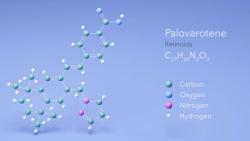
OR WAIT null SECS
- About Us
- Advertise
- Contact Us
- Editorial Info
- Editorial Advisory Board
- Do Not Sell My Personal Information
- Privacy Policy
- Terms and Conditions
© 2026 MJH Life Sciences™ , Pharmaceutical Technology - Pharma News and Development Insights. All rights reserved.
One Voice; Many Possibilities
Particularly in a more connected world, individual contributions can make a difference.
A review of the leading stories of the past year reminds me of the interconnectivity between countries and the economic, political, and social conditions that shape those relationships. Greater globalization, as evident by the pharmaceutical majors' emerging-market growth strategies, the attendant elongation of the supply chain, the use of geopolitical environmental scanning to monitor world events, and the entry of the US Food and Drug Administration and the United States Pharmacopeia into Asia and South America show this broadening focus. Reflecting on these events, I am given pause to consider an aspect of this dynamic that I had not previously fully considered: the interrelationship between science and human rights.
In January 2009, the American Association for the Advancement of Science (AAAS), an organization of 262 affiliated academic, professional, and scientific organizations, which together serve 10 million members, launched the AAAS Science and Human Rights Coalition, which is part of the AAAS Science and Human Rights Program (SHRP). In 2005, SHRP met with scientific, academic, and human-rights organizations to explore ways scientists could become more involved in human rights. In 2007, SHRP decided to pursue that goal, and after a two-year planning effort involving 20 scientific member organizations, launched the coalition. Its goal is to facilitate communication and partnerships on human rights within the scientific community and between scientific and human-rights groups.
"Scientific groups traditionally have spoken up when the rights of individual scientists are threatened, but the coalition seeks a broader interaction among scientists and human-rights advocates," outlined the AAAS in a July 7, 2009 statement. "The aim is to provide scientists a better understanding of human-rights issues—including the right of all people to share the benefits of scientific progress and its applications—while helping human-rights advocates better understand the tools, expertise, and other resources that science can offer for monitoring human-rights abuses and realizing human rights."
The coalition includes 26 member organizations, 16 affiliated organizations, and 43 affiliated scientists and is organized into five working groups: welfare of scientists; science ethics and human rights; service to the scientific community; service to the human-rights community; and education and information resources. The coalition held its second meeting in July 2009 and will meet again in January 2010.
(C SQUARED STUDIOS/GETTY IMAGES)
AAAS also launched in 2008 a new program, On-call Scientists, which connects scientists interested in volunteering their expertise to human-rights organizations. Thus far, 349 scientists have signed up to volunteer for the program. Such efforts are important and show how valuable individual contributions can be.
On a personal note, this point became more clear to me after attending several events honoring Ingrid Betancourt, a Colombian–French citizen, human-rights advocate, and recent nominee for the Nobel Peace Prize. Ms. Betancourt is a former Colombian legislator, presidential candidate, and anticorruption activist. She was held as a prisoner for nearly six and a half years by guerrillas in the Colombian jungle until she and 14 other hostages were freed in July 2008. Since her release, Ms. Betancourt has advocated for the release of the remaining hostages in Colombia, calling for peaceful solutions, dialogue, and continued international support. In 2008, she participated in a United Nations symposium, addressed the European Parliament, and met with the leaders of South America.
Ms. Betancourt is focusing on philanthropic and humanitarian work. In late 2008, she launched a foundation, The Ingrid Betancourt Foundation, whose efforts are focused on promoting peace, social justice, and environmental conservation and biodiversity around the world. Part of the foundation's initial work is a project to provide teenagers who live in impoverished and conflict-ridden areas with opportunities for education and livelihood. The project aims to provide them academic and professional formation so that they can find their own way, far from these problems, and build their lives.
Ms. Betancourt recently was honored for her efforts. She was awarded the Medal of Honor from the National Assembly of Québec and received a prize for courage from Canada's Governor General Michaëlle Jean. She also participated in lectures on human rights and received an honorary doctorate in recognition of her work.
In attending some of those events, it was a special experience for me to hear first-hand the words of a deeply compassionate and caring person and made me see more fully how important one person's contribution can be. One voice—one life—many possibilities.
Patricia Van Arnum is a senior editor of Pharmaceutical Technology.



